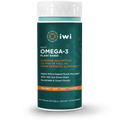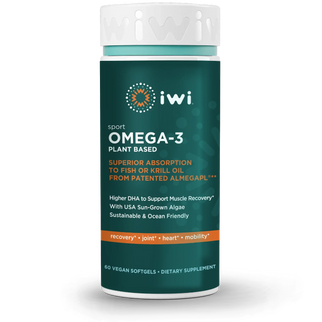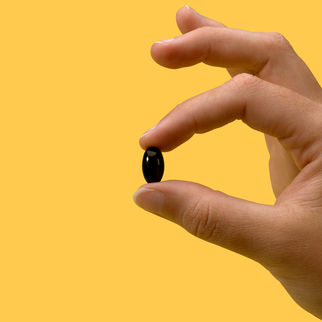With a busy lifestyle, getting the necessary nutrients through diet alone can be challenging, and sometimes a little help goes a long way. Taking dietary supplements supports your overall health and keeps up your daily pace with essential vitamins and minerals.
Men must receive the right nutrients at any age to support their overall health and wellness. Including just a few supplements into your daily routine can support your energy levels, muscle tone, testosterone levels, and more.
Are Supplements Necessary for Men?
Supplements can be very helpful for many people, but it raises the question of whether you need to include them. The answer is that it depends.
Of course, every man is different, so you should take supplements as needed. However, some nutrients are vital in supporting men’s health, making them great additions to your daily intake.
Your diet and lifestyle will also influence the types of nutrients that you should be taking. For example, if you frequently eat foods high in vitamin C, you likely do not need an additional supplement to experience the health benefits.
On the other hand, if you rarely eat magnesium-rich foods, it is more important to supplement the nutrient. Certain lifestyle choices, like drinking alcohol or smoking cigarettes, can also impact your need for certain nutrients by affecting your nutrient absorption.
You should plan on taking a personalized approach to supplementation as there is no one-size-fits-all solution. When considering which supplements you may need most, it is always helpful to consult with your doctor.
What Are the Most Important Supplements for Men’s Health?

Although men benefit from a wide range of nutrients, many are easier to obtain than others, meaning that only a select few may require supplementation to meet nutritional needs. Depending on your specific daily needs, you should consider taking the following supplements to support your overall health and wellness.
Vitamin C
Many people tout the benefits of vitamin C for supporting a healthy immune system, and rightfully so. The nutrient can help support the production of white blood cells that lend themselves to overall healthy immune function. The vitamin is an antioxidant, meaning it can support overall cell health.
Vitamin C also serves several other benefits. This vitamin can sufsmoke pport iron absorption in the body, specifically plant-sourced, non-heme iron, making it a helpful supplement for men on a plant-based diet. Vitamin C is helpful for men as it helps maintain proper blood flow, which means that it can support sexual health and well-being.
The recommended dietary allowance (RDA) for men is 90 mg daily. Food sources of vitamin C include green vegetables, peppers, and citrus fruits. Men who smoke may need to take an additional 35 mg daily because smoking can reduce levels of vitamin C in the body.
Folate
Folate, also known as folic acid, is one of the B vitamins crucial for the formation of red blood cells and the proper functioning of cells.
You can find folate in foods like leafy green veggies, beans and legumes, and nuts, but a supplement can come in handy for those who don’t get enough of these foods.
General recommendations suggest that men get around 400 mcg of folate daily, with a tolerable upper intake level of 1,000 mcg.
Vitamin D
One of the most important functions of vitamin D is its role in supporting calcium absorption in the body. However, it also plays an integral part in supporting healthy muscle function and immune health. Vitamin D may even help support testosterone levels, which is important since testosterone influences bone mass, muscle strength, and sex drive.
Daily recommended amounts of vitamin D are15 micrograms for adults and 20 micrograms for adults over 71. Dietary sources of vitamin D include milk, fatty fish, and fortified foods, like cereals and some juices.
You can also obtain vitamin D from spending time in the sun, as your skin can convert ultraviolet B radiation into the vitamin. However, many variables, like clouds and smog, can hinder your body’s ability to do so. At the same time, spending too much time in the sun can lead to sunburn and skin damage. Although vitamin D from the sun is important, do not plan on receiving your daily intake through sunlight alone. Vitamin D supplementation becomes more important as you age since the nutrient synthesis in the skin may weaken.
Boron
Although it is less often discussed in many conversations about health and well-being, boron is still an important nutrient you should have as part of your daily intake. Boron is a trace mineral found in foods like raisins, almonds, and garbanzo beans.
Boron has many benefits for the general population, particularly its “potential ability to support the growth and development of bones. The trace mineral also supports healthy levels of antioxidant enzymes in the body and supports skin health. Boron also supports healthy cognitive functioning, which makes it an especially beneficial supplement for people during aging.
Boron helps to support several important areas of men’s health specifically. The benefits of boron for men include its ability to support prostate health, maintain healthy testosterone levels, and support the body’s ability to utilize certain nutrients. A healthy intake of boron helps support the bioavailability of vitamin D and magnesium in the body, providing several indirect benefits as well.
Around 1 mg of boron daily may be recommended for most men.
Magnesium
The benefits of taking a magnesium supplement are wide-ranging. This mineral can support a healthy heart rate, protein synthesis, healthy muscle function, and bone health. Magnesium may also aid in muscle recovery, making it a helpful supplement for especially active men. In young men, magnesium can support healthy sleep patterns and emotional wellness.
The RDA for magnesium is between400 and 420 mg for men. The mineral is found most commonly in plant sources. Magnesium-rich foods include nuts, seeds, leafy greens, whole grains, and legumes. If you struggle with maintaining a diet that includes magnesium, then it is a good idea to take a daily supplement to support your overall health and wellness.
Studies show that most Americans do not receive the recommended magnesium intake, as up to 57% of the population falls short. People who are more likely to require magnesium supplementation are those with long-term excessive alcohol intake, elderly people, people with type 2 diabetes, and others with malabsorption conditions. Supplements can help compensate for poor absorption or excessive losses of the nutrient through urine.
Zinc
Zinc can help maintain certain bodily functions in many adults, but it also offers some benefits specific to men. Taking zinc can help support healthy testosterone levels and sperm count, especially in men with low amounts. Zinc has even been noted as a way to support vitality and a healthy sex drive.
Men over 18 should receive at least 11 mg of zinc per day. Zinc is found naturally in many foods, especially those high in iron. Great sources of zinc include shellfish, wheat germ, beef, pumpkin or sesame seeds, dark chocolate, fortified cereals, soybeans, nuts, and more.
Since zinc plays a vital role in men’s health, a supplement containing zinc is a great way to support overall wellness.
Omega-3

Omega-3 fatty acids, particularly DHA and EPA, are some of the most helpful nutrients for men, as they have wide-ranging benefits from promoting maintaining blood pressure to supporting overall energy levels. They also help maintain healthy cholesterol levels already in the healthy range and overall heart health. Omega-3s are especially helpful during aging as they help support healthy cognitive function and eye health.
You can receive omega-3 most popularly from fatty fish, like salmon, tuna, sardines, mackerel, and more. Fish oil supplements are also a popular and convenient way to obtain omega-3s. However, each source has its drawbacks, like potential contamination from ocean water and an unpleasant smell.
Fortunately, another excellent source of omega-3s exists! Algae supplements provide DHA and EPA without the unpleasant smells and fishy burps from other omega-3 sources. Algae can even give the body more access to omega-3s than other sources. For example, iwi life’s omega-3 supplement contains a proprietary blend of omega-3 fatty acids and polar lipids, allowing the body to absorb the essential nutrients 50% better than other sources.
Multivitamin
It can be hard to know which supplements you may need most, so why not cover all of your bases? A multivitamin is a convenient solution to missing out on vital nutrients, bringing many of your needs into one source.
Men’s multivitamins are specially formulated to promote men’s health during growth and aging. A good men’s multivitamin will provide several of the above nutrients and more to support your overall wellness.
Start Obtaining the Nutrients You Need
Although everyone is different, supplements can provide several benefits for men who do not receive their recommended daily intake of certain nutrients. Several nutrients are especially important for men to support healthy growth and development and healthy aging.
At iwi life, we want to support your overall health and wellness the best we can, which is why our omega-3 supplements are designed to provide you with vital DHA and EPA fatty acids. To see how omega-3s can help you maintain your health, explore our complete family of products.
Sources:
Comparison of Common Calcium Supplements | American Family Physician
Magnesium | The Nutrition Source | Harvard T.H. Chan School of Public Health.
Effect of vitamin D supplementation on testosterone levels in men | PubMed Zinc is an Essential Element for Male Fertility: A Review of Zn Roles in Men’s Health, Germination, Sperm Quality, and Fertilization
Nothing Boring About Boron | PubMed Central
Folate (folic acid) | Mayo Clinic
Folate (Folic Acid) – Vitamin B9 | The Nutrition Source | Harvard T.H. Chan School of Public Health.
Boron – Health Information Library | PeaceHealth



















